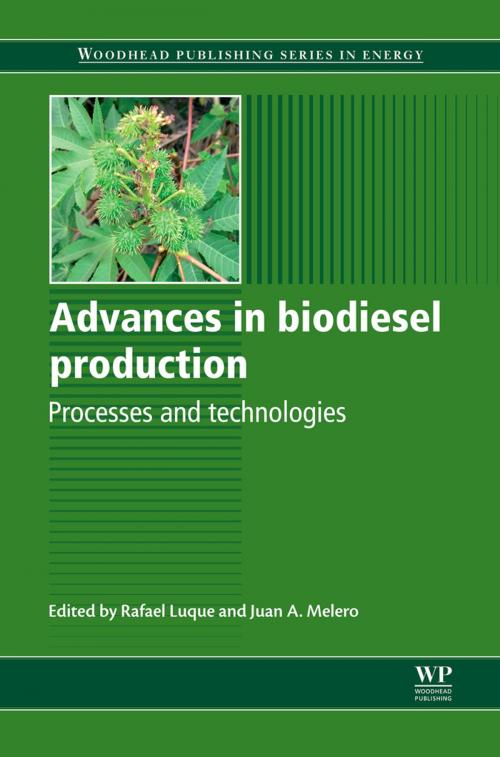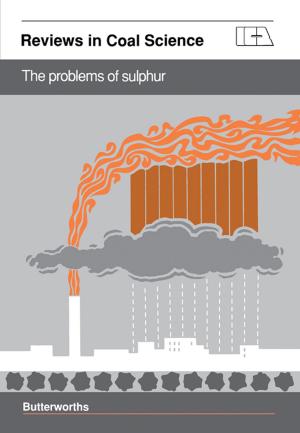Advances in Biodiesel Production
Processes and Technologies
Nonfiction, Science & Nature, Technology, Power Resources| Author: | ISBN: | 9780857095862 | |
| Publisher: | Elsevier Science | Publication: | February 22, 2012 |
| Imprint: | Woodhead Publishing | Language: | English |
| Author: | |
| ISBN: | 9780857095862 |
| Publisher: | Elsevier Science |
| Publication: | February 22, 2012 |
| Imprint: | Woodhead Publishing |
| Language: | English |
Biodiesel is one of the main biofuels capable of substituting fossil fuel usage in compression ignition vehicles, and is used in a variety of fuel blends worldwide. First-generation biodiesel has been used in national markets for some time, with fuel quality standards in place for this purpose. There remain, however, several restrictions to sustainable and long term market development, which is influenced by many factors, including food vs. fuel pressures. The development of new generations of biodiesel, aimed at more sustainable and effective feedstock utilisation alongside improved production efficiency and fuel quality, is critical to the future both of this industry and of the continuing use of biodiesel fuels in transportation.
This book provides a timely reference on the advances in the development of biodiesel fuels, production processes and technologies. Part one reviews the life cycle sustainability assessment and socio-economic and environmental policy issues associated with advanced biodiesel production, as well as feedstocks and fuel quality standards. This coverage is extended in Part two, with chapters focussing on the development of methods and catalysts essential to the improvement and optimisation of biodiesel production processes and technologies.
With its distinguished editors and international team of contributors, Advances in biodiesel production a standard reference for chemical, biochemical and industrial process engineers, as well as scientists and researchers in this important field.
- Provides a timely reference on the advances in the development of biodiesel fuels, production processes and technologies
- Reviews the life cycle sustainability assessment and socio-economic and environmental policy issues associated with advanced biodiesel production, as well as feedstocks and fuel quality standards
- Discusses the development of methods and catalysts essential to the improvement and optimisation of biodiesel production processes and technologies
Biodiesel is one of the main biofuels capable of substituting fossil fuel usage in compression ignition vehicles, and is used in a variety of fuel blends worldwide. First-generation biodiesel has been used in national markets for some time, with fuel quality standards in place for this purpose. There remain, however, several restrictions to sustainable and long term market development, which is influenced by many factors, including food vs. fuel pressures. The development of new generations of biodiesel, aimed at more sustainable and effective feedstock utilisation alongside improved production efficiency and fuel quality, is critical to the future both of this industry and of the continuing use of biodiesel fuels in transportation.
This book provides a timely reference on the advances in the development of biodiesel fuels, production processes and technologies. Part one reviews the life cycle sustainability assessment and socio-economic and environmental policy issues associated with advanced biodiesel production, as well as feedstocks and fuel quality standards. This coverage is extended in Part two, with chapters focussing on the development of methods and catalysts essential to the improvement and optimisation of biodiesel production processes and technologies.
With its distinguished editors and international team of contributors, Advances in biodiesel production a standard reference for chemical, biochemical and industrial process engineers, as well as scientists and researchers in this important field.
- Provides a timely reference on the advances in the development of biodiesel fuels, production processes and technologies
- Reviews the life cycle sustainability assessment and socio-economic and environmental policy issues associated with advanced biodiesel production, as well as feedstocks and fuel quality standards
- Discusses the development of methods and catalysts essential to the improvement and optimisation of biodiesel production processes and technologies















